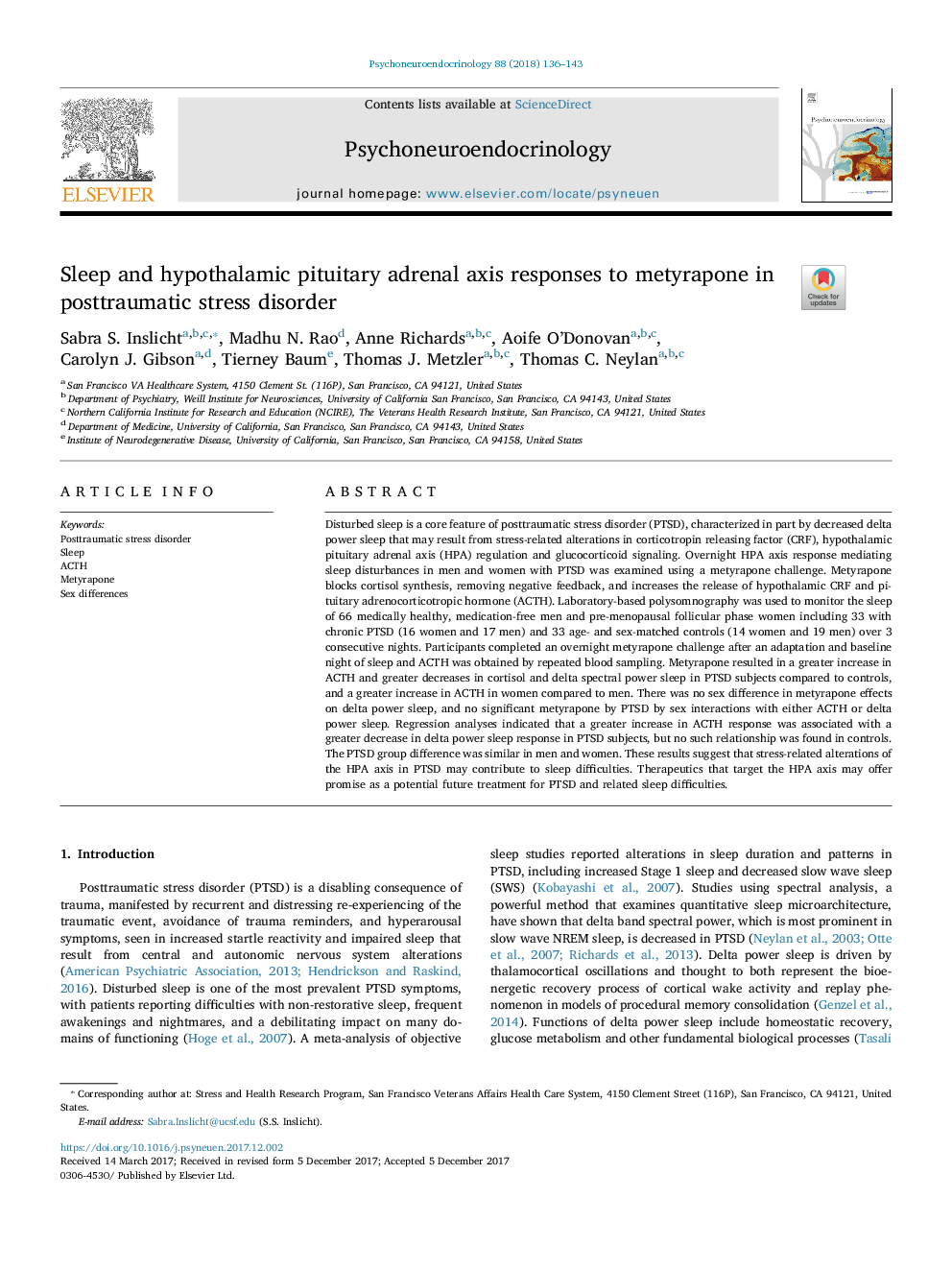ترجمه فارسی عنوان مقاله
پاسخ های محور خواب بالا و هیپوتالاموس غده هیپوفیز به متایروپون در اختلال استرس پس از سانحه
عنوان انگلیسی
Sleep and hypothalamic pituitary adrenal axis responses to metyrapone in posttraumatic stress disorder
| کد مقاله | سال انتشار | تعداد صفحات مقاله انگلیسی |
|---|---|---|
| 123844 | 2018 | 8 صفحه PDF |
منبع

Publisher : Elsevier - Science Direct (الزویر - ساینس دایرکت)
Journal : Psychoneuroendocrinology, Volume 88, February 2018, Pages 136-143

